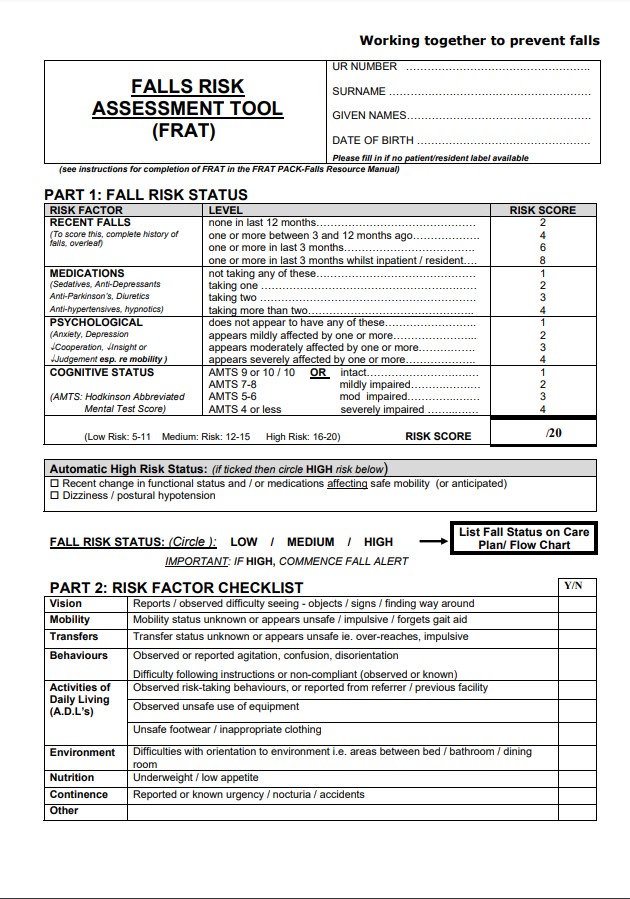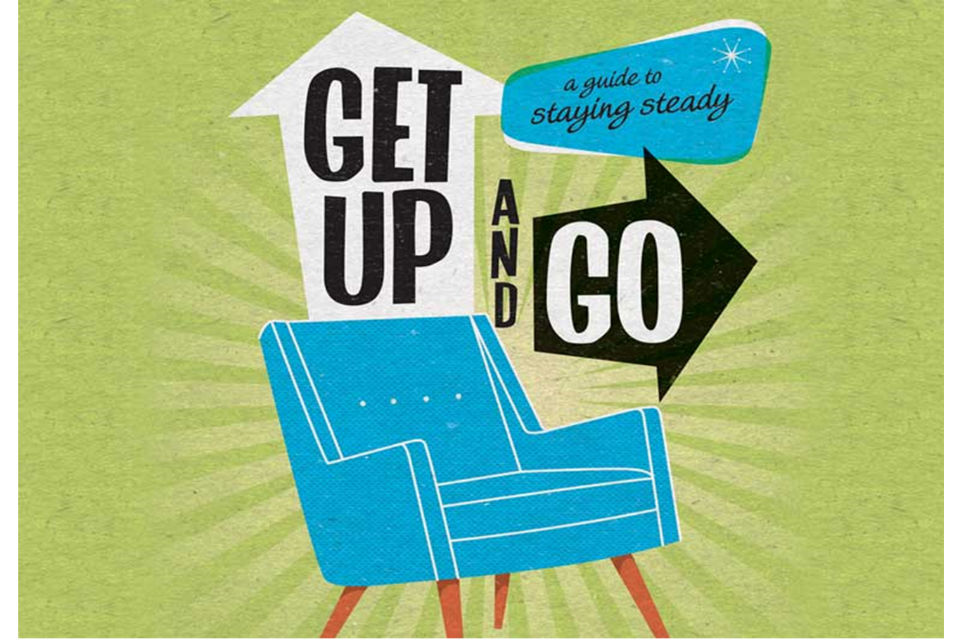Dementia Fall Risk for Dummies
Dementia Fall Risk for Dummies
Blog Article
8 Simple Techniques For Dementia Fall Risk
Table of ContentsThe Dementia Fall Risk DiariesThe Single Strategy To Use For Dementia Fall RiskThe Basic Principles Of Dementia Fall Risk The Best Strategy To Use For Dementia Fall RiskThe Basic Principles Of Dementia Fall Risk
The FRAT has three areas: drop danger status, risk factor checklist, and activity plan. A Fall Danger Status includes information regarding background of recent drops, medications, mental and cognitive status of the individual - Dementia Fall Risk.If the person scores on a threat element, the matching number of factors are counted to the client's fall threat score in the box to the far. If a person's fall risk rating completes five or higher, the individual goes to high risk for falls. If the individual scores only four points or reduced, they are still at some threat of dropping, and the registered nurse should use their finest professional evaluation to take care of all loss threat variables as part of an all natural care plan.
These standard strategies, in basic, help establish a safe setting that reduces unintentional drops and marks core safety nets for all clients. Indicators are important for individuals at risk for drops. Medical care service providers need to recognize who has the condition, for they are in charge of executing actions to advertise patient safety and stop falls.
All About Dementia Fall Risk
Wristbands must include the person's last and very first name, date of birth, and NHS number in the UK. Just red shade should be utilized to signify unique person condition.
Products that are too much may need the person to connect or ambulate needlessly and can potentially be a danger or add to drops. Aids stop the client from going out of bed with no help. Registered nurses reply to fallers' call lights quicker than they do to lights launched by non-fallers.
Aesthetic impairment can significantly cause drops. Keeping the beds closer to the flooring minimizes the danger of falls and major injury. Positioning the bed mattress on the flooring dramatically decreases fall danger in some healthcare setups.
The smart Trick of Dementia Fall Risk That Nobody is Discussing
Clients that are tall and with weak leg muscular tissues that try to rest on the bed from a standing position are likely to drop onto the bed because it's as well low for them to lower themselves safely. If a high client efforts to get up from a reduced bed without assistance, the person is most likely to fall back down onto the bed or miss out on the bed and fall onto the floor.
They're made to advertise prompt rescue, not to avoid falls from bed. Audible alarms can also remind the person not to rise alone. The use of alarm systems can also be a replacement for physical restrictions. Other than bed alarms, increased guidance for high-risk patients likewise may assist prevent falls.

Clients with an evasion stride boost loss possibilities drastically. To minimize loss threat, footwear check my blog must be with a little to no heel, thin soles with slip-resistant tread, and sustain the ankle joints.
What Does Dementia Fall Risk Mean?
People, particularly older adults, have decreased aesthetic capability. Lights an unknown atmosphere aids boost visibility if the patient need to get up at evening. In a research study, homes with sufficient lights record less falls (Ramulu et al., 2021). Renovation in illumination at home may lower fall rates in Discover More Here older grownups (Dementia Fall Risk). Making use of stride belts by all health treatment providers can promote safety and security when aiding patients with transfers from bed to chair.

Caretakers work for ensuring a protected, protected, and risk-free environment. Nevertheless, research studies showed really low-certainty evidence that sitters reduce loss danger in intense care health centers and only moderate-certainty that options like video clip monitoring can minimize caretaker usage without boosting fall danger, suggesting that caretakers are not as valuable as at first thought (Greely et al., 2020).
The Best Guide To Dementia Fall Risk

Enhanced physical conditioning reduces the danger for falls and restricts injury that is endured when autumn transpires. Land and water-based workout programs may be similarly useful on balance and gait and thus reduce the danger for falls. Water workout may add a positive benefit on equilibrium and gait for females 65 years and older.
Chair Increase Exercise is a simple sit-to-stand workout that helps reinforce the muscle mass in the thighs and butts and boosts mobility and independence. The objective is to do Chair Rise workouts without utilizing hands as the customer becomes more powerful. See sources section for a comprehensive instruction on exactly how to carry out Chair Rise workout.
Report this page